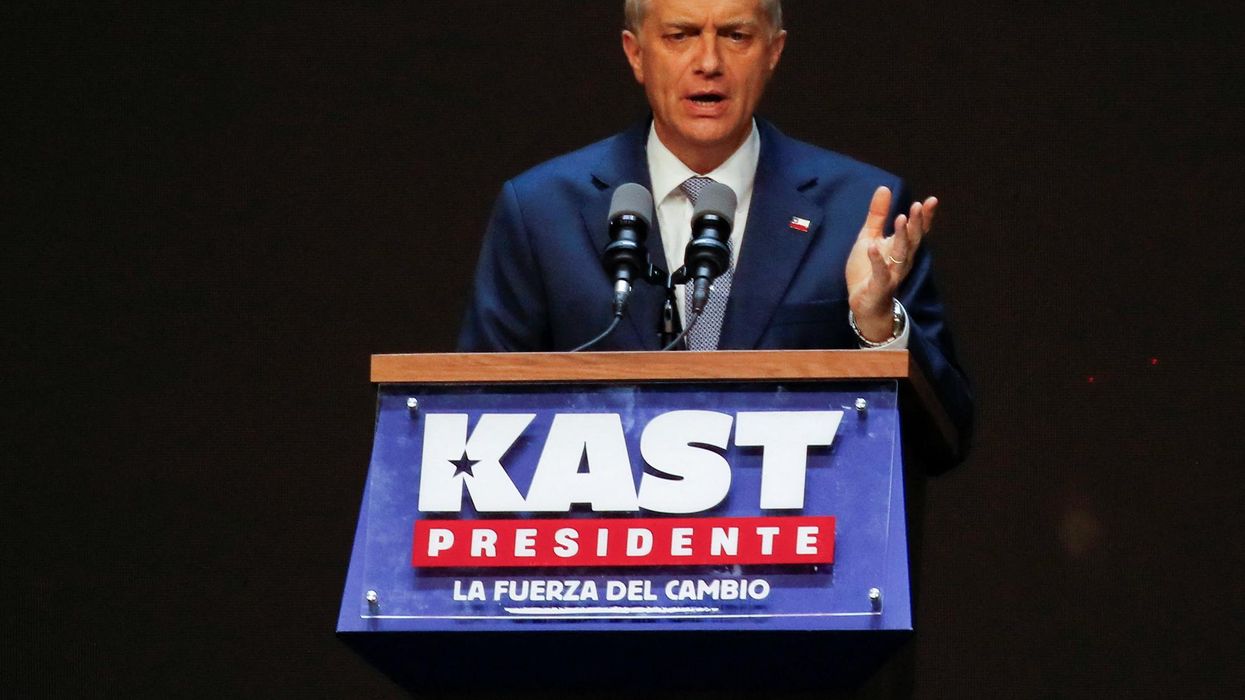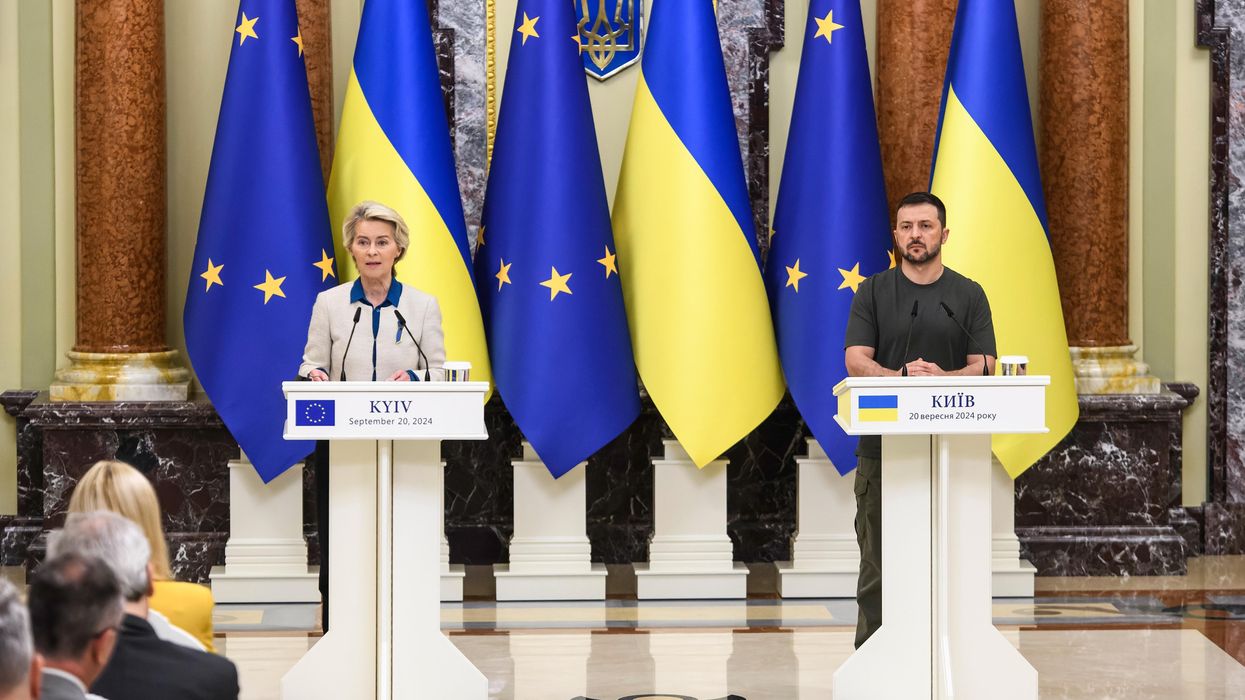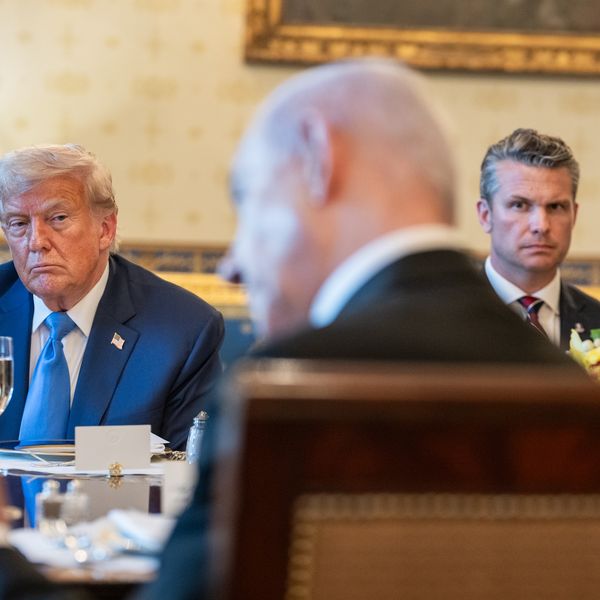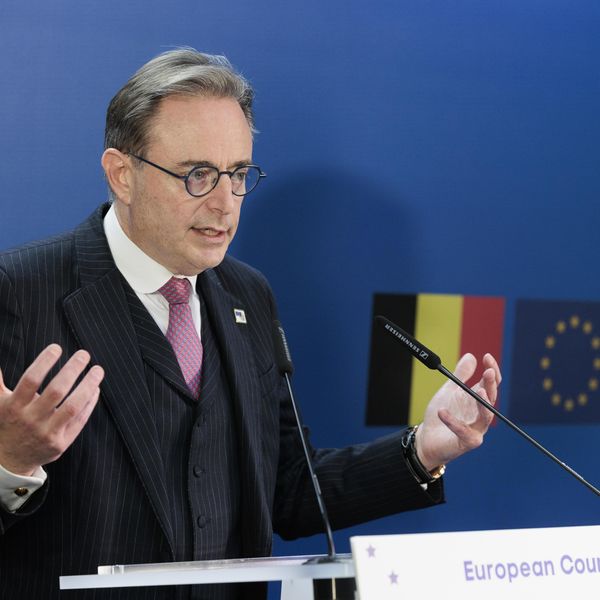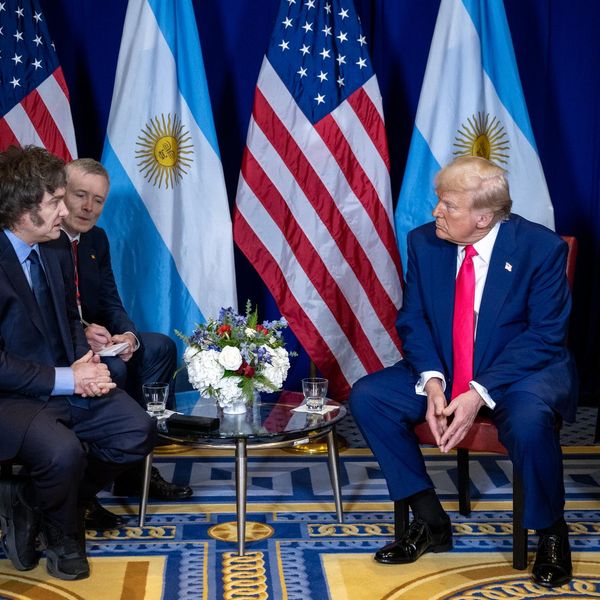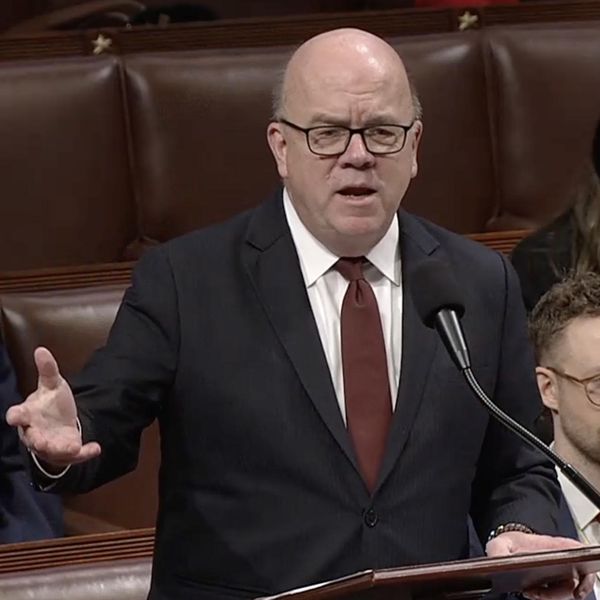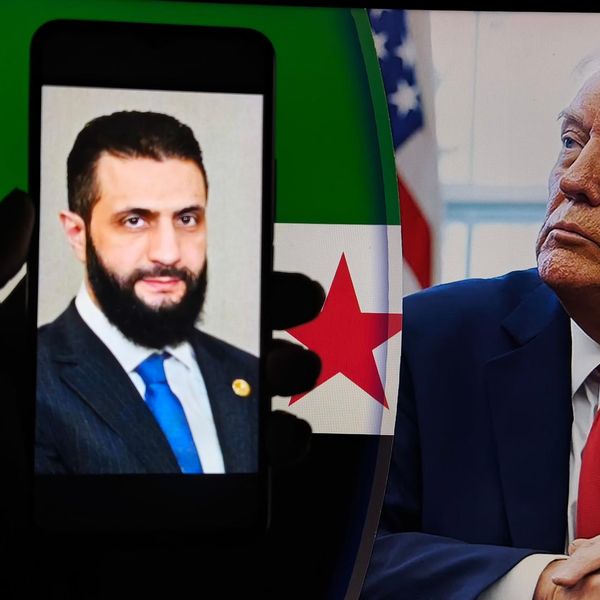The United States is co-hosting the second Summit for Democracy later this week. In coordination with events in the capitals of Costa Rica, the Netherlands, South Korea, and Zambia, Washington will host a combination of in-person and virtual meetings to follow up on the original 2021 summit.
The summit seems unlikely to accomplish anything useful. The first Summit for Democracy was a largely pointless exercise in Biden’s first year in office, and it raises the question of why the administration thought it was worth holding a second one.
The same controversies that marred the first summit are sure to accompany this one. NATO allies Hungary and Turkey have once again been left off the list of invitees, while other governments that have been undermining democracy and the rule of law in their countries will still be represented. The snubbed governments may consider their exclusion to be a badge of honor, or they may take offense that they have been excluded again for what they will consider to be arbitrary reasons. Regardless, the U.S. and its co-hosts need to be able to explain why certain states don’t make the cut for events like this and others with similar records do.
One problem is that the hosts may end up paying a political price for excluding some states from what is little more than a glorified talking shop. If the hosts refuse to draw any lines about which states can participate, they open themselves up to criticism that the summit has no substance, but if they set the bar high enough, they will end up leaving out most of the world’s elected governments. When the U.S. and its partners make decisions to exclude some states for backsliding while ignoring the failings of others, it opens them up to charges of hypocrisy and favoritism.
Take India, for example. India has been steadily moving in the wrong direction under Prime Minister Narendra Modi for years. In the latest example of India’s backsliding, the leader of India’s opposition, Rahul Gandhi, has just been expelled from parliament after being found guilty of defamation because of his criticisms of the prime minister. Gandhi will now be barred from standing in elections for the next six years.
The decision has provoked protests from all of India’s opposition parties, and Gandhi’s expulsion has even been called the “direct murder of democracy.” The spokesman for Gandhi’s Congress Party said that it was part of a “systematic and repetitive emasculation of democratic institutions by the ruling party.” It remains to be seen what the administration’s official response to this development will be, but it would be genuinely surprising if the U.S. did more than express concern.
The U.S. has mostly ignored democratic backsliding in India in recent years out of a desire to cultivate their government as a partner against China. Earlier this year, the Indian government banned a BBC documentary critical of the prime minister, and the State Department played dumb. When the government then raided BBC offices last month, the State Department downplayed it. Washington has lots of practice of looking the other way when a partner government becomes more illiberal and authoritarian, but this becomes much harder to ignore when our government is frequently touting the importance of democracy in a grand struggle with “autocracy.”
It will be awkward at best to have the Indian government represented at a democracy summit while that government is openly undermining democracy and press freedom in India. Including India in this year’s summit makes it clear that there is no consistent or principled standard being applied against backsliding governments.
Letting India participate in an event like this right now helps Modi to distract from his government’s creeping authoritarianism and majoritarian abuses. Whatever goals the Biden administration hopes to achieve with these summits, providing cover for an illiberal nationalist while he squashes his political opposition is presumably not one of them.
The Biden administration’s “democracy vs. autocracy” rhetoric has never been a good fit for U.S. foreign policy or international political realities. Not only does the U.S. have many semi-authoritarian and authoritarian partners and clients that have absolutely no interest in defending democracy, but U.S. “leadership” has also put Washington at odds with democratic nations that do not want to be part of its global conflicts and rivalries.
Instead of rhetorically dividing the world into opposing camps, the U.S. should be open to cultivating better relations with as many states as possible regardless of regime type. As many observers have started to notice, the U.S. has become too inflexible in its foreign policy, and the “democracy vs. autocracy” framing risks reinforcing this rigidity when we can least afford it.
Other democratic governments will naturally have their own national interests, and they are not going to sacrifice those interests just because the U.S. and its European allies say that it is necessary for the sake of a larger ideological cause. The U.S. needs to understand that other democracies are not obligated to side with Washington on every major issue, and it needs to appreciate that sharing a form of government does not guarantee that other states will see the world as our government does.
In many cases, other states may remain neutral or even end up on the other side of a major issue because their governments are doing what their voters want. If the U.S. truly respects other democracies, it has to accept that they may adopt different and even opposing views about important international developments. Our leaders should not delude themselves into believing that they speak for all democratic states or that their preferences are the ones that all democracies must have.
The U.S. would be better served if our leaders devoted their attention to shoring up and repairing our own dilapidated political system. Especially in foreign policy, we need a government that is more transparent and accountable to the people. Our leaders preach democracy to the rest of the world while neglecting or weakening it at home. The best thing that the U.S. could do to “bolster” the cause of democracy in the world is to improve our own practice of it here.
That brings us back to the question of what purpose this summit serves. If it is intended to “bolster” democratic norms and practices and stave off backsliding, it is not working very well. If it is just putting on a show to congratulate ourselves on the superiority of our own system, it is a waste of time and effort. If it is mostly an exercise in providing window dressing for some other policy agenda, we could dispense with the pretense that it has anything to do with democracy at all.
Given all these pitfalls, another democracy summit doesn’t seem to be worth the headaches that it will likely create for Washington.


